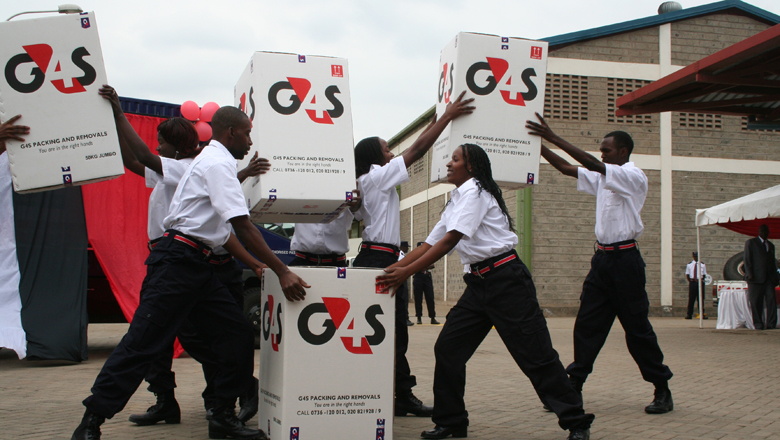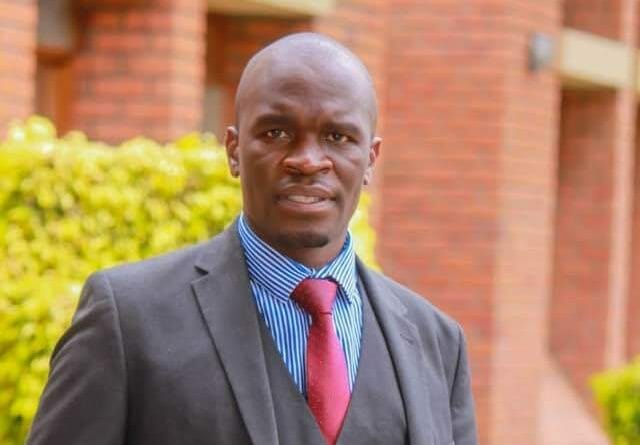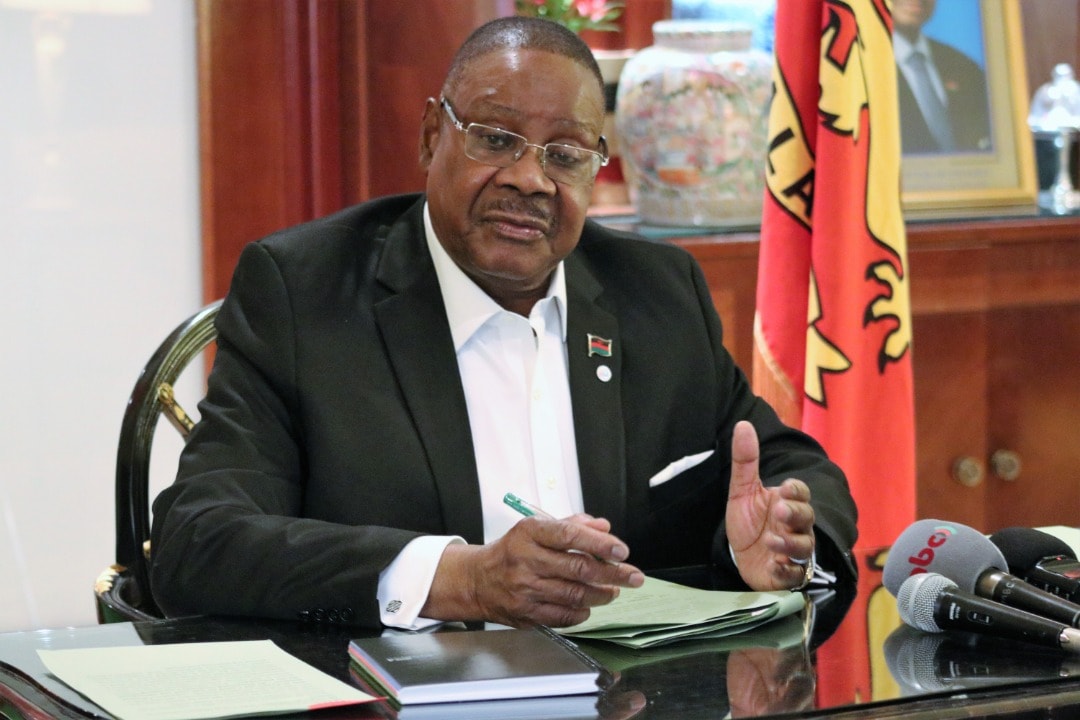
One night in March 2017, Kondwani Banda (not real name), a security officer for G4S Malawi, got badly injured when he tried to stop a group of heavily armed robbers armed with machetes who set out to rob a mobile phone tower he was guarding in Blantyre, Malawi’s commercial capital.
They assaulted and hacked him and left him for dead before getting away with solar batteries and cables.
It took him several days in hospital to regain consciousness.
After almost two weeks after he was discharged from the hospital he reported for work, but his employer gratified him with a dismissal without any compensation.
The reason he lost his job, Banda explained, was a disagreement over the number of sick days he was to take.
“G4S management expected me to return to work seven days after I was discharged from the hospital, against the doctors’ recommendation of three weeks,” Banda explains.
G4S gave him MK11,000 (US$14.93) – payment for the days worked up until the attack. After that, G4S provided no compensation.
Banda’s attack by robbers left him jobless and with a permanent disability on his right hand. At the time of the interview, he told us that he earned a living by selling sweets and biscuits around his neighbourhood.
“Now I can’t do piece works that demand my physical stamina because my hand that was hacked has permanent disability,” he said. “It’s two years now and G4S is not even saying anything about my situation.”
At first, G4S Malawi denied the allegations. “I can challenge the guy who claims to have been hacked at work to come forward and say that we have never assisted him,” Human Resources Director for G4S Malawi Sandie Kumwenda said in an interview in G4S office.
However, while we were still doing the story, Banda asked for a retraction of the story, claiming that his former employee had asked him to retract his story, in exchange for a re-offer of his old job. He took back his old job.
Banda’s story is collaborated by another worker – 43-year-old Benson, who opted for anonymity in fear of losing his job. He testified that he has seen workers getting no compensation after suffering injuries while on duty.
He could not provide a total figure, but challenged that he was ready to take us to several of his colleagues who got injured on duty but are yet to receive compensation.
Kumwenda explains that where a security guard has been injured on duty or has suffered a broken leg while at home or at work, they have a health and safety system. The administrator together with members of his team rush to the rescue and assist accordingly.
“We are at the moment helping a guard who was hit while riding a motor cycle,” Kumwenda argues adding that they also have had an incident where an employee was hit by a car and died after leaving his post and went to another place on private business. The victim’s relations received 100 percent compensation.
“I can challenge the guy who claims to have been hacked at work to come forward and say that we have never assisted him,” Kumwenda stated categorically.
Ironically, Benson claims that G4S security dogs are well taken care of, unlike its human workforce.
“For example, once a dog falls ill, the company instantly sends a car for them. The dogs are taken for treatment to better health facilities, but for us, we have to take care of ourselves,” Benson noted.
Another thing, he said although there are company regulations that say, once bitten by a dog, there shall be compensation, this is nothing but a joke.
“I know colleagues who were bitten by the security dogs, 20 to 30 years ago and are still waiting for their compensation.
After 17 years of working for G4S, Benson receives around K29,500 ($40 USD) per month, while the minimum wage in Malawi is MK35,000 per month.
“I survive by getting money from loan sharks,” Benson said.
Kumwenda denied the accusations, saying all workers are paid above the national minimum wage.
Yet Daniel’s payment slip that we saw confirmed he was being paid less than MK35,000.

Unpaid Overtime/Poor Welfare
Another worker who requested to be identified as Stephano claims that since he joined G4S on December 1, 2014, employees are made to work 12 hours in contravention to Government labour provision of 8 hours work per day.
“Which means there is an extra four hours that we are made to work which we are not paid for as part of our salary,” Stephano explains.
He said as if the salary issue is not bad enough, looking after their welfare while at work is another thing.
“The salary of MK30,000 per month is [for] hand to mouth. It can only help me to manage pay for my sleeping place and some basic food items and that’s all.”
As head of HR, however, Kumwenda counter-argues that G4S realised there is need to improve communication with the guards as they do not have accurate information, no wonder all the allegations.
Kumwenda says workers who are joining G4S are benefiting from salaries that are above the national minimum wage of MK35,000 per month.
Benson makes another claim when he says they are yet to receive their pensions effected after the new act was put in place.
Kumwenda again dismissed claims that workers are not receiving pension.
“Everybody here, when they join the first day, they are automatically on pension; there is no one who is never on pension in this business,” he stated.
Before 2011, people were not on pension but after the change in the Pension Act everyone was put on pension and calculations going backward from 2010 were made and deposited with G4S pension administrators, Kumwenda explained.
Despite reported poor employee working conditions, in 2008, G4S signed a global agreement with Union Network International (UNI) which prescribed terms of what became part of Ethical Employment Partnership (EEP) to raise employment standards throughout G4S and the wider market.
The agreement also stated that G4S could provide long-term employment opportunities and help drive up international employment standards. The parties reached a global agreement to ensure that G4S provides pay for overtime, sick leave, and does not dismiss employees due to an injury incurred during work.
All these labour violations notwithstanding, UNI and G4S in 2008 agreed that the latter would respect all the workers’ rights as defined by ILO Conventions covering freedom of association, the use of forced labour and child labour, and discrimination at work.
However, the framework agreement has been unable to force the company to comply with international labour standards or local labour laws.
Malawi’s G4S employees belong to the Textile, Garment, Leather and Security Services Workers Union (TGLSSWU) and its General Secretary Charles Mikundi said in an interview that the information provided by the workers and ex-employees is misleading.
He insisted that at the end of the day, it must make a profit.
“G4S was not making profits because of too much absenteeism by workers, and to control this, the company and the union agreed that if an employee absents himself or herself without notifying the supervisor or employee, he/she will lose 50% of the overtime not salary as you indicated,” he said.
He said the 10% increase came after they assessed the company’s affordability to give out such payments and survive without having to be compelled by anything the employees wanted.
“So, the 10% was reasonable because the company raised its services fees to their clients by 4.5%,” he said.
Mikundi said the law in Malawi states that a guard’s overtime is 50% of hourly rate but the union negotiated with the employer and changed it to 100% hourly rate, now if they are absent, without notification, they lose the 50% negotiated by the union.
The G4S in Malawi still is working with the union and that they have no problem with the company as of now.
Mikundi said those who left the company can say a lot of things but the truth is they were paid according to the law and were also given what they deserve.

International Agreements/Report Findings
Despite reported poor employee working conditions, in 2008, G4S signed a global agreement with Union Network International (UNI) which prescribed terms of what became part of Ethical Employment Partnership (EEP) to raise employment standards throughout G4S and the wider market.
The agreement also stated that G4S could provide long-term employment opportunities and help drive up international employment standards. The parties reached a global agreement to ensure that G4S provides pay for overtime, sick leave, and does not dismiss employees due to an injury incurred during work.
All these labour violations notwithstanding, UNI and G4S in 2008 agreed that the latter would respect all the workers’ rights as defined by ILO Conventions covering freedom of association, the use of forced labour and child labour, and discrimination at work.
However, the framework agreement has been unable to force the company to comply with international labour standards or local labour laws. Malawi’s G4S employees belong to the Textile, Garment, Leather and Security Services Workers Union (TGLSSWU) and its General Secretary Charles Mikundi said in an interview that the information provided by the workers and ex-employees is misleading.
He insisted that at the end of the day, it must make a profit.
“G4S was not making profits because of too much absenteeism by workers, and to control this, the company and the union agreed that if an employee absents himself or herself without notifying the supervisor or employee, he/she will lose 50% of the overtime not salary as you indicated,” he said.
He said the 10% increase came after they assessed the company’s affordability to give out such payments and survive without having to be compelled by anything the employees wanted.
“So, the 10% was reasonable because the company raised its services fees to their clients by 4.5%,” he said.
Mikundi said the law in Malawi states that a guard’s overtime is 50% of hourly rate but the union negotiated with the employer and changed it to 100% hourly rate, now if they are absent, without notification, they lose the 50% negotiated by the union.
The G4S in Malawi still is working with the union and that they have no problem with the company as of now.
Mikundi said those who left the company can say a lot of things but the truth is they were paid according to the law and were also given what they deserve.

Trade unions/Legal Actions
Against the poor background of non-compliance to labour laws in Malawi, G4S is dodged by a litany of labour litigations by its employees.
In a 2011 two security guard employees, Charles Chalamba and Francis Nkozomba successfully sued for unfair dismissal and received in March 2014, compensation of MK543,000 (US$744) each.
Samson Mathiwa, Wales Justin and Peter Silikasi also sought court relief following their unfair dismissal in 2013. They claimed damages for unfair labour practices, costs of the action, and were awarded compensation in September, 2018, amounting to MK1,917,000.00 (US$2,625) plus costs of the assessment.
Another employee, Steve Fred sued for pain and suffering, loss of amenities of life, special damages, and costs of the action.
Fred was employed as a dog handler by G4S and on 24th November, 2014, he was assigned by his supervisor to take a dog outside the G4S premises. As he took the dog out of the kennel and tried to handle it, the dog turned and mauled him.
As a result, he sustained injuries. He was awarded MK2,600,000 (US$3,562) in damages for pain and suffering; MK1,500,000 (US$2,055), damages for loss of amenities of life and MK3,000,000 (US$4,110) as costs for procuring the medical report, and costs of the action.
Head of HR, Kumwenda, however, claims the compensation headache is caused by plenty jobless lawyers targeting labour intensive organizations like G4S and coerce the workers to take legal routes.
“Lawyers are busy sniffing around for cases that require compensation,” he said.
He argued that there are no way issues of compensation would be ending in court as G4S has a robust incident reporting system. Each morning, he said, there are records that capture anything that happened the previous night.
“If our employee has been injured, we get involved full time starting with hospitals,” an adamant Kumwenda contended.
“What happens with workers compensation is that you cannot claim before you are fully healed. The reason is we are yet to assess the extent of damage because the calculations are based on the percentage of incapacity.”
“We prepare the initial compensation and do the final one later after ascertaining percentage of incapacity which is calculated by the Workers Compensation Committee,” explained Kumwenda who said besides him, the Managing Director and the Financial Director also do get the reports.
He insisted that what Banda is saying cannot be true. He dared him to take his matter with his office.
Banda said he was unable to take his matter to management because the accessibility to bosses is not easy.
“We only meet our immediate supervisors who unfortunately to not take our cases to the top management,” he said.
Benson maintains that G4S is not doing enough for its employees.
“The company will bring all sorts of excuses including one that says a file is missing. I can confidently state that it’s not an easy thing for our company G4S to release money for its employees. Where it does, is only when you go out of your way to involve lawyers,” Benson said.
He added that Malawi’s ministry of labour should put in place laws to protect and enforce interests of workers for a company like G4S.
“I know government might try to do its best but I know the way my company operates. Sometimes G4S can buy vehicles for all police stations in the country and therefore putting government in an awkward position to chastise it when it is ill-treating its employees,” he argued.
Government says to the best of its knowledge, the trade union for G4S is one of the most active branches of the Union because the last time wage negotiations took place was in 2019 for the 2019/20 increment which ended in agreement.
“It is therefore surprising to hear allegations of low salaries,” Public Relations Officer for Ministry of Labour, Skills and Innovation Christina Mkutumula.
She also said the issue of medical scheme is a matter for negotiation between employees and their employer since it is not provided for in the law.
“This Ministry is not aware that G4S is violating provisions of the law on overtime, day off and pension. We have no doubt that staff of the company, including their union leaders, are aware on where to report violations of labour laws,” she said. Mkutumula however said Government’s immediate reaction whenever they receive such reports is to conduct an inspection so that management does not have any suspicions that an employee may have reported the violations.
“We trust that under the Ethical Employment Partnership, there is provision for audits to assess compliance with agreed standards. These should be able to give a fair reflection of the situation on the ground,” she said.
This article was developed with the support of The Bay & Paul Foundations. (https://bayandpaulfondations.org) If you would like to find out more about the Private Security Network, please visit: https://privatesecurity.network/ If you would like to share information on a security provider, please visit this safe, secure and anonymous leak platform: https://secure.publeaks.nl/s/psn.html








